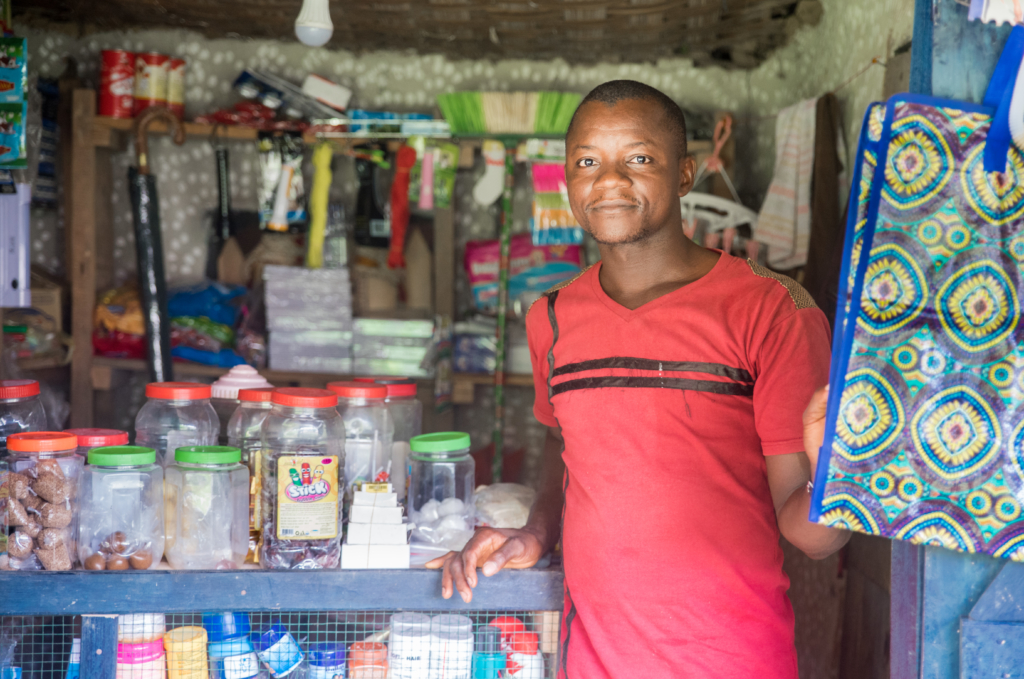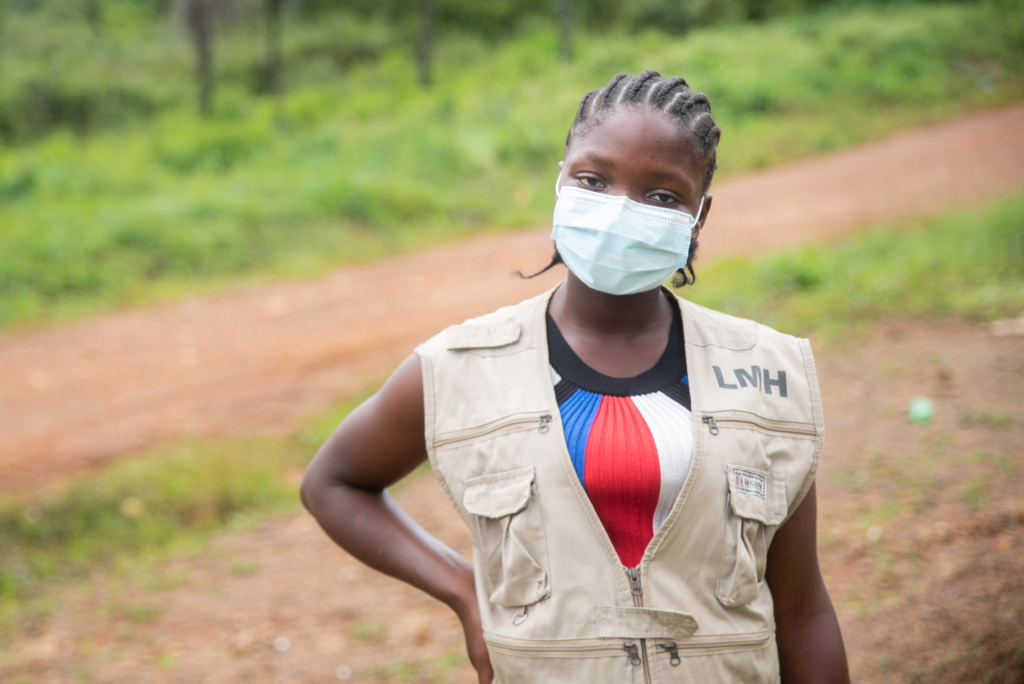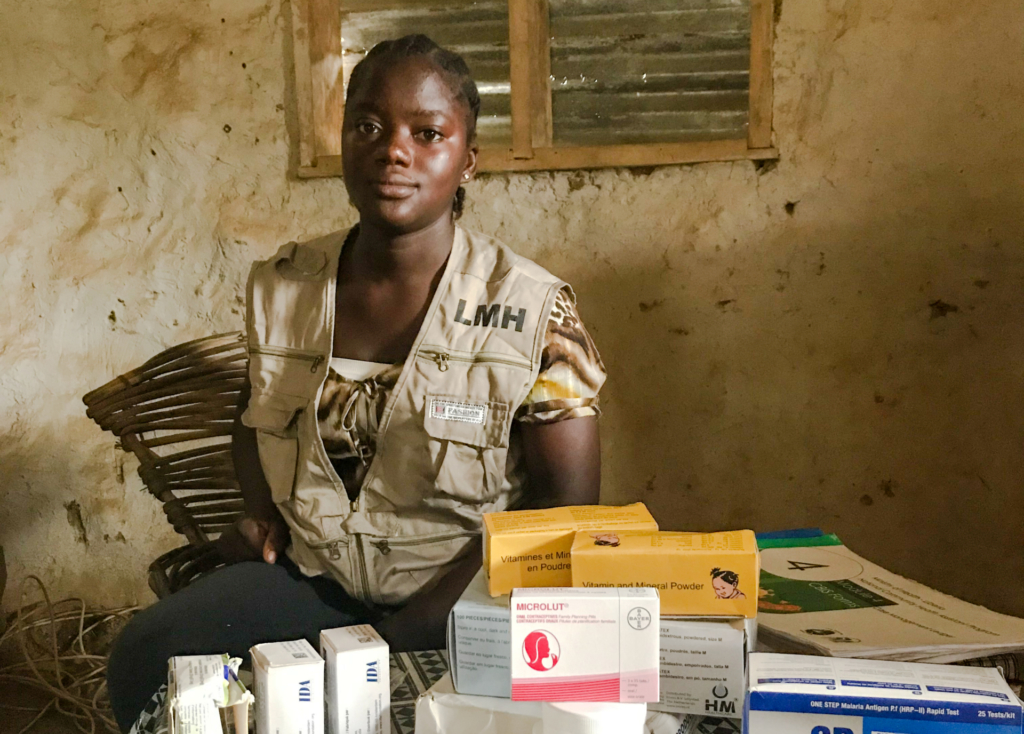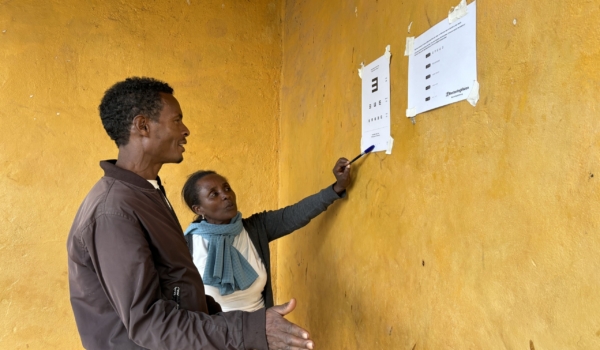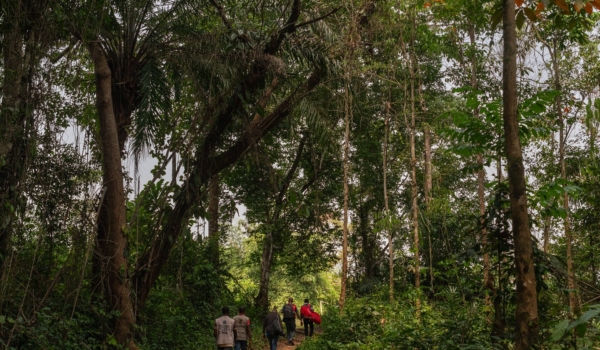When community health workers are equipped to bring primary health services to the doorsteps of people living far from care, they improve health outcomes and save lives. At Last Mile Health, we believe the legacy of COVID-19 can be health for all, but only if we invest in community and frontline health workers.
Here, three Liberian community health workers share the critical support that allows them to best serve their communities.
“Doing the volunteer job, it’s fine because you are doing it for your community, but you need to eat. You need [compensation] to sustain you and your family also.” – James George
James currently serves more than 250 people in his community in Yarra District, which is accessible only by canoe. He is one of the nearly 4,000 community health workers employed through Liberia’s national community health worker program. As part of the program, James was trained to prevent, diagnose, and treat common health conditions and conduct community-based disease surveillance. He is supervised a nurse at the nearest facility, supplied with the tools and medication required to serve his neighbors, and most critically, paid for his life-saving work.
Since becoming a community health worker in 2015, James has been able to invest his salary in a shop where he sells snacks, household items, and other goods. James and his wife have three children and James is able to support their schooling with his earnings.
“It is important to use PPE because…it also protects the community health worker. You have to use PPE to protect yourself in the community.” – Naomi Davis
Naomi provides essential, lifesaving care to her neighbors in a remote community in Grand Bassa County through Liberia’s national program. Since the program’s launch, community and frontline health workers like Naomi have carried out over 5 million home visits; treating and/or screening nearly 1.5 million childhood cases of pneumonia, malaria, diarrhea, and malnutrition. In addition, every community health worker has been trained to respond to COVID-19—Naomi and her peers are leading efforts to educate their neighbors on COVID-19 disease transmission, signs and symptoms, hand washing, and home isolation protocol, while also screening and referring household members for COVID-19 during routine household visits.
Early data indicates that the community health worker service provision has held steady since the onset of the pandemic. Community health workers have continued reaching their neighbors with crucial care, even when access to secondary and tertiary services has seemed further out of reach. Supplies of personal protective equipment (PPE) have been essential in this effort to ensure that community health workers can stay safe while they continue serving their communities.
“I dream of finishing school and going to become a nurse so I can better serve my people.” – Mardea Sinoe
When Mardea was in 8th grade, she was recognized as the salutatorian of her middle school. She had a promising future, but her parents could not afford to send her to high school. Now trained as a community health worker, Mardea dreams of the next steps in her career.
In addition to eight weeks of initial training, Liberia’s community health workers receive continuing education resources and regular supervision from nurses or physician assistants. As critical members of the primary health team, community health workers like Mardea deserve a clear pathway to advance their careers while continuing to serve their communities.
Worldwide, community health workers have been recognized as heroes during the COVID-19 pandemic. But applause is not enough; they need our investment and support. Take it from James, Mardea, Naomi, and their thousands of colleagues in Liberia and around the globe.

